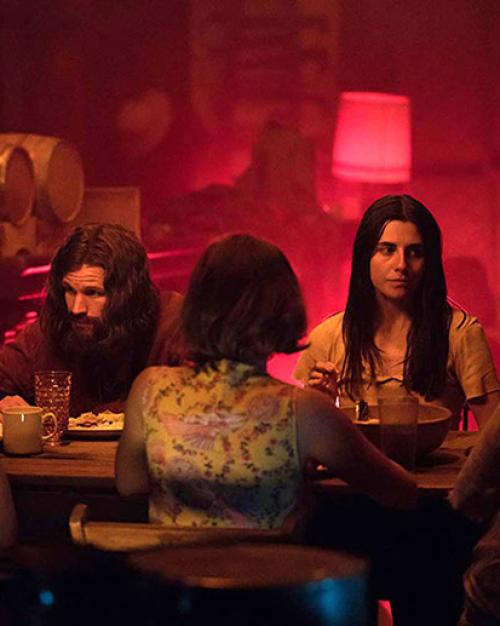When Mary Fessenden, Cornell Cinema director, sits down to think about what films to show each semester, she has lots of movies in mind, but she also works closely with professors to find ties to the classes they’re offering.
“In my course, one of the big questions is why and how Japanese pop culture — comics, games, and especially anime — grew into such a worldwide phenomenon,” said Andrew Campana, assistant professor of Asian studies, who is sending students from his Japanese pop culture class to see three movies this semester. “Showing massively popular and influential animated films like ‘Castle in the Sky,’ ‘Ghost in the Shell’ and ‘Your Name’ in the theater, the way most people would have seen them, is by far the best way to recreate that initial impact felt by their audiences across the globe.”
Fessenden receives requests from faculty all across campus – from history to development sociology to Performing and Media Arts to plant pathology – while simultaneously reaching out to faculty to let them know about films they may be interested in using for their courses. She then begins the process of putting together the semester-long schedule, arranging faculty introductions, guest filmmaker and musicians’ visits, and finding and booking the films, which come from myriad sources. Once the schedule is in place, she turns things over to Doug McLaren, cinema manager; Teresa Alvis, administrative assistant and shipping manager; and Paul Dimmick, head projectionist, to manage the logistics of getting and presenting the films.
Students in the class Thinking about History with the Manson Murders will see three films at Cornell Cinema this semester, including Quentin Tarantino’s latest, “Once Upon a Time in Hollywood.”
“I’m most excited about ‘Charlie Says’ because the film’s screenwriter, Guinevere Turner, agreed to come to Cornell in order to discuss the film with my students,” said Claudia Verhoeven, associate professor of history. “ ‘Charlie Says’ has been praised by critics as a feminist take on the Manson Family, and the students will watch the film during a week that will focus on feminism, gender and sexuality.”
Students in horticulture and plant pathology classes also have the opportunity to earn credit by taking a trip to the cinema. Screenings of “Fantastic Fungi,” as well as three films from a gardening series, “The Biggest Little Farm,” “Five Seasons” and “The Garden” are tied to courses in those fields. The Garden Cinema series, which includes seven films, is cosponsored by the Cornell Botanic Gardens.
Sending students to attend screenings is even easier for faculty this year, with the addition of the cinema’s All-Access Pass, which offers admission to all regularly priced movies for the academic year for one fee: $10 for Cornell graduate and professional students; $20 for students and children and $30 for general admission. The passes have been a hit this year, with more than 2,000 sold so far, Fessenden said.
“Faculty response to the All-Access Pass has been very positive, as it makes it much easier for them to assign film screenings to their students, especially when they’re interested in having their students attend more than one film,” she said.
While technology allows films to be viewed on myriad devices these days, professors say there are multiple benefits to a Cornell Cinema screening.
“You not only get to see this incredibly intricate artwork come to life on a big screen, but you get to have the kind of collective emotional experience that more than anything explains just why it is these works of media became as important as they did,” Campana said.
Fessenden said that the number of films being released each year continues to climb, and that these films are addressing a broader and broader array of subject matter, so she anticipates even more ties between classes and films in the years to come. “The right film can do a lot to bolster and expand upon what a student learns in the classroom,” she said.
“Cornell Cinema has always been a hub of interdisciplinary programming, but our new financial stability, thanks to increased support from the College of Arts & Sciences, has afforded us the time to make even more connections across campus to realize the full educational potential of the films we screen,” she said.
Other highlights at Cornell Cinema this semester:
- Steamboat Bill Jr., Feb. 15, 2 p.m. and The Wheels of Chance, Feb. 15, 4:30 p.m.: These silent films will be accompanied by Dr. Philip Carli, who has toured extensively as a film accompanist throughout North America and Europe.
- The Golem, March 4, 7:15 p.m.: The film will be shown in a new digital restoration with live accompaniment by guitarist Gary Lucas, who will reprise the score he wrote for the film over 30 years ago.
- Your Eyes are Spectral Machines: a live projector performance, March 20, 7 p.m.: This program consists of three projection performances by artist Luis Macías, co-founder of Crater Lab, an independent film development laboratory in Barcelona.






